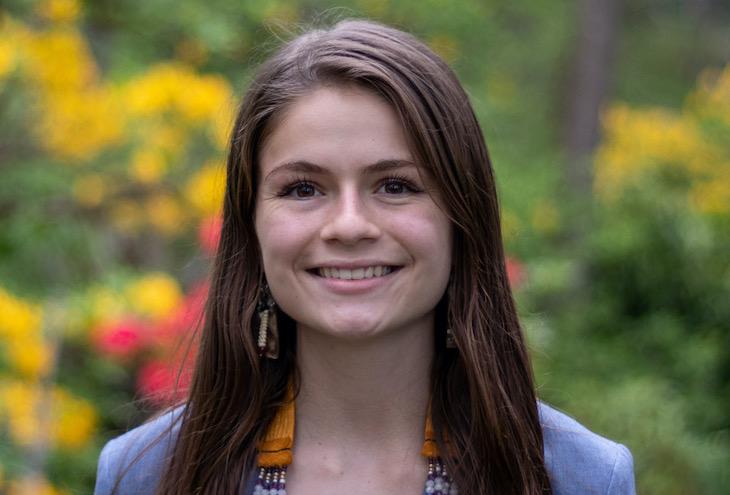When most people say they want to be a doctor or researcher, they often imply that their parents forced them into it. My parents are professors of history — boy, were they surprised when I came out loving math and science!
Being raised by professors definitely shaped my work ethic. Ever since I can remember, I was in a college classroom. While my father was doing research and writing his book, I visited residential schools our families had gone to, and he told me stories that made me angry and frustrated. My grandparents’ experiences driving far from our reservation for medical care also influenced my path.
My mother is a fiery individual who always stands up for what she believes in. Before basketball games, she would have me stand in front of a mirror with her and scream, “I am a monster!” She sparked a confidence in me to stand up for those who aren’t able to fight for themselves.
While I grew up in many college towns, most notably I lived in Las Vegas. From a very early age, my mom encouraged me to join math and science clubs. During middle school and high school, we studied science for fun all the time. I found people who also loved science, which gave me a small community I could thrive with.
I actually wanted to be an aeronautical engineer until I participated in the Research Experience for Underrepresented Students at the University of Nevada after I graduated from high school. I was placed in a neuroscience lab. I loved the brain and looking at cells, and I knew that was the path I wanted to follow.
At the University of Oregon, I felt lonely and homesick at first. My father pushed me to go to the Longhouse for their weekly community meeting and dinner — that day really changed my life. I was welcomed with open arms and met a student trying to go to medical school who became my mentor. I still often feel alone in my classrooms, having to correct professors when they oversimplify Native American issues or confront someone for having questionable comments. But I remember that, at the end of the day, I have my community there to support me.
My first research experience changed the course of what I wanted to do. I realized how much we don’t know about our own brain! A project on how a stressful environment could change brain cells made me think about the long-term impacts of oppression, the reservation system, and the forced removal of our people.
My PI (principal investigator) suggested I apply to conferences and has helped me become more comfortable in my lab by discussing problems minority groups face. Other students get a better understanding of why I’m the way I am and become more respectful.
I am extremely proud of my two Udall Undergraduate Scholarships (the Morris K. Udall Fellowship). Through the Stamps Scholarship, my school’s most prestigious award, I was able to study abroad and performed research at Harvard Medical School this past summer under Dr. Brendan Lehnert, my first-ever Native American mentor in research.
I was very nervous and honestly did not feel like I was supposed to be there. But I realized that I could be in these spaces and succeed! I also was able to feel more supported than I ever had when it came to relating to my Native American heritage. We named the experimental mice in our Native languages, smudged on the lawn in front of the school, and talked about the difficulties of being a Native American in this field.
Two of the major teachings I have received from my culture are empathy and community. I have become very active when it comes to pushing the university to have more resources for Native American students in STEM and to make neuroscience more inclusive and supportive.
This year, I hope we’ll start rebuilding our AISES chapter, a dream of mine since I was a freshman. I often felt alone and overwhelmed, but I knew a person in the Native American Student Union who had been in my shoes. I knew if he could do it, I could too. I want this same idea to be in my AISES chapter: a safe community where we all support each other and see that we can accomplish our goals!
I plan to pursue an MD/PhD to find early biomarkers for diseases like cancer and neurodegenerative disorders that plague reservations so I can provide specialized health care to my people. Further, I want to explore how historical trauma can chemically and morphologically change the brain to try to understand how to reverse the impacts of colonialism at the cellular level.
Native American issues, health care, and science are intermingled in my path. Once you think about diabetes, you then think about food accessibility and exercise issues that can be addressed through science. We need young students to be inspired by these problems to create change in their communities!













